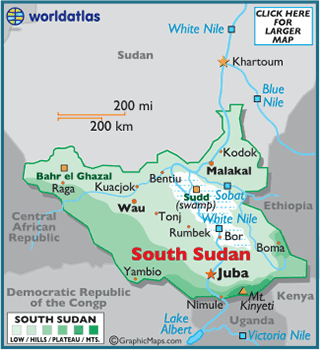 So, you don’t recall learning about South Sudan in high school history or geography? No surprise. The country was formed in 2011, less than a decade ago. In this post we take a break from our usual focus on Africa Sunrise Communities’ work. Let’s look at South Sudan as a country and how its history shapes our mission.
So, you don’t recall learning about South Sudan in high school history or geography? No surprise. The country was formed in 2011, less than a decade ago. In this post we take a break from our usual focus on Africa Sunrise Communities’ work. Let’s look at South Sudan as a country and how its history shapes our mission. 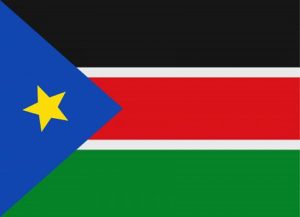 South Sudan was formed on July 9, 2011 after a referendum for independence from Sudan passed by an overwhelming majority. The country of Sudan had been formed from the Anglo-Egyptian colony of the same name and included the mostly Muslim and Arabic-speaking North along with the largely animist and Christian South, where many tribal peoples spoke their own languages and English. A long history of tension and outright fighting between peoples of the North and South finally led to this split and the founding of South Sudan.
South Sudan was formed on July 9, 2011 after a referendum for independence from Sudan passed by an overwhelming majority. The country of Sudan had been formed from the Anglo-Egyptian colony of the same name and included the mostly Muslim and Arabic-speaking North along with the largely animist and Christian South, where many tribal peoples spoke their own languages and English. A long history of tension and outright fighting between peoples of the North and South finally led to this split and the founding of South Sudan.  Many South Sudanese consider themselves part of East Africa, aligned with nations like Ethiopia, Kenya, and Uganda. As you can see from the map above, South Sudan is at a crossroads between East Africa and North Africa (Sudan, Egypt, Libya, etc.) and Central Africa (Central African Republic and Congo).The territory of South Sudan covers about 240,000 square miles, a little smaller than the state of Texas, but a population less than half of Texas. A July 2017 estimate puts the population of South Sudan at about 13,026,129 (July 2017 est.), a little larger than the population of the US state of Pennsylvania (https://www.cia.gov/library/publications/the-world-factbook/geos/print_od.html).
Many South Sudanese consider themselves part of East Africa, aligned with nations like Ethiopia, Kenya, and Uganda. As you can see from the map above, South Sudan is at a crossroads between East Africa and North Africa (Sudan, Egypt, Libya, etc.) and Central Africa (Central African Republic and Congo).The territory of South Sudan covers about 240,000 square miles, a little smaller than the state of Texas, but a population less than half of Texas. A July 2017 estimate puts the population of South Sudan at about 13,026,129 (July 2017 est.), a little larger than the population of the US state of Pennsylvania (https://www.cia.gov/library/publications/the-world-factbook/geos/print_od.html).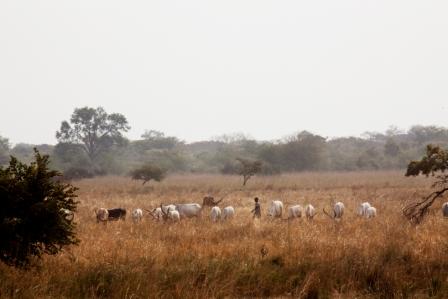 While most Americans think of “Sudan” as being a desert country, like Libya or Egypt, South Sudan is a tropical savanna with a distinct rainy season in summer and a dry season in winter. Temperatures range from 68 degrees to 98 degrees (Fahrenheit) and while most of the rains fall in the winter months, the annual rainfall for most of the country ranges from 31 to 40 inches. This leads to widespread seasonal flooding in the summer months that can cut off some villages from roads.
While most Americans think of “Sudan” as being a desert country, like Libya or Egypt, South Sudan is a tropical savanna with a distinct rainy season in summer and a dry season in winter. Temperatures range from 68 degrees to 98 degrees (Fahrenheit) and while most of the rains fall in the winter months, the annual rainfall for most of the country ranges from 31 to 40 inches. This leads to widespread seasonal flooding in the summer months that can cut off some villages from roads. 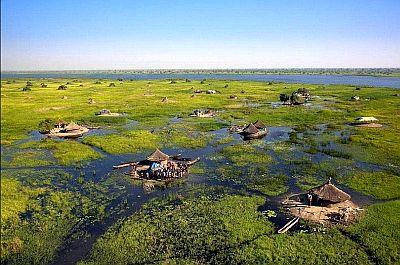 As the website www.climatestotravel.com explains, “…in some areas crossed by rivers there are wetlands, including the Sudd [see photo at right], the largest swamp in the world, situated in the north along the White Nile and its tributaries, which are lost in a myriad of lakes, canals, lagoons, covered with aquatic plants and inhabited by a large number of species of land animals and birds. The summer rains increase the surface of the flooded areas.”The official language of South Sudan is English. But Arabic is a frequently used as a 2nd semi-official language, since it is the official language of Sudan. But the people of South Sudan are a diverse collection of communities. There are over a dozen ethnic groups, sometimes referred to as “tribes,” each of which has its own language, traditions, and history. The Dinka are the largest ethnic group, making up as much as 30% of the population. The next largest group are the Nuer, who comprise about 15% of the total. There are least a dozen other ethnic groups, such as the Shiluk, the Azande, and even self-identified Arabs.
As the website www.climatestotravel.com explains, “…in some areas crossed by rivers there are wetlands, including the Sudd [see photo at right], the largest swamp in the world, situated in the north along the White Nile and its tributaries, which are lost in a myriad of lakes, canals, lagoons, covered with aquatic plants and inhabited by a large number of species of land animals and birds. The summer rains increase the surface of the flooded areas.”The official language of South Sudan is English. But Arabic is a frequently used as a 2nd semi-official language, since it is the official language of Sudan. But the people of South Sudan are a diverse collection of communities. There are over a dozen ethnic groups, sometimes referred to as “tribes,” each of which has its own language, traditions, and history. The Dinka are the largest ethnic group, making up as much as 30% of the population. The next largest group are the Nuer, who comprise about 15% of the total. There are least a dozen other ethnic groups, such as the Shiluk, the Azande, and even self-identified Arabs.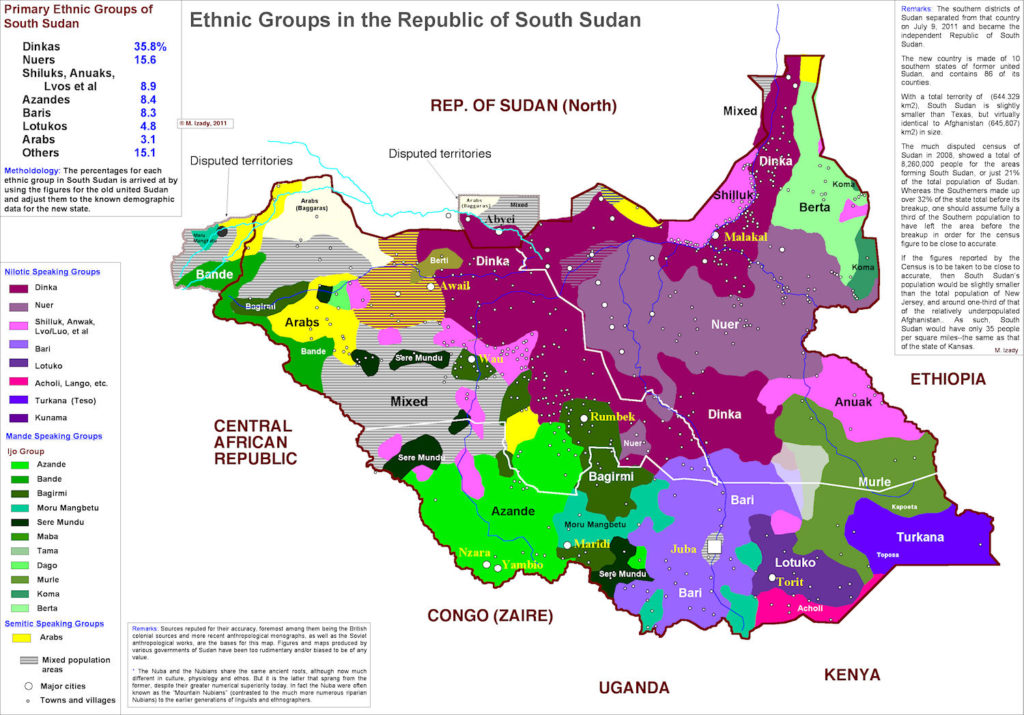 The diversity of ethnicity and local languages is overlayed with a mixture of religious practice, ranging from traditional “animist” beliefs, Christianity–which was introduced during the British colonial period–and Islam, principally among peoples living along the border with Sudan to the North where Islam is the dominant religion.
The diversity of ethnicity and local languages is overlayed with a mixture of religious practice, ranging from traditional “animist” beliefs, Christianity–which was introduced during the British colonial period–and Islam, principally among peoples living along the border with Sudan to the North where Islam is the dominant religion.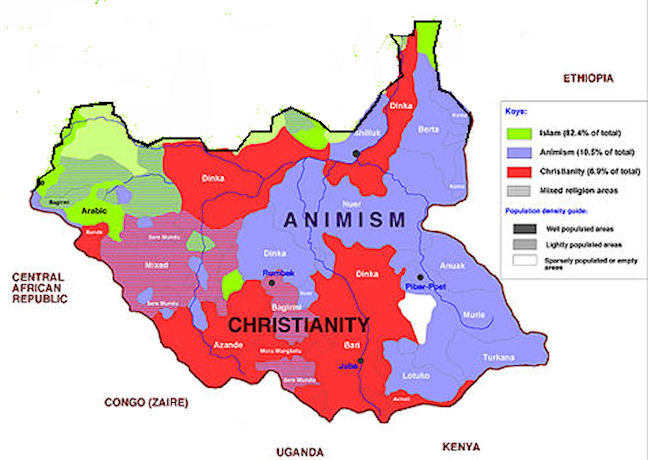 The important thing to understand is that South Sudan is a complex mosaic of peoples who all want peace and prosperity, but may not agree on how to get there. As with many post-colonial nations, South Sudan’s politics reflects, and sometimes exacerbates, tensions between different ethnic and religious groups. Their constitution created a presidential republic with two houses of legislature. However, the struggle to balance the interests of competing ethnic groups continues. One summary of the current situation, with the author’s own opinions, appears here. A longer article with more details appears here.Finally, it is important to understand that in addition to a colonial history, a history as part of the original Sudan (governed by Arabic-speaking Muslims from North Sudan), and a diverse ethnic and religious make-up, South Sudan is home to large deposits of oil. The competition to control access to oil fields contributed to the fighting and violence that led to South Sudan’s independence from the North. But it is also one of the factors leading to the new nation’s civil war and continuing inter-tribal fighting since independence. The people of South Sudan have lived with fighting and conflict of various types for over twenty years. Today millions of people are still displaced from their home villages or living in refugee camps in neighboring countries.
The important thing to understand is that South Sudan is a complex mosaic of peoples who all want peace and prosperity, but may not agree on how to get there. As with many post-colonial nations, South Sudan’s politics reflects, and sometimes exacerbates, tensions between different ethnic and religious groups. Their constitution created a presidential republic with two houses of legislature. However, the struggle to balance the interests of competing ethnic groups continues. One summary of the current situation, with the author’s own opinions, appears here. A longer article with more details appears here.Finally, it is important to understand that in addition to a colonial history, a history as part of the original Sudan (governed by Arabic-speaking Muslims from North Sudan), and a diverse ethnic and religious make-up, South Sudan is home to large deposits of oil. The competition to control access to oil fields contributed to the fighting and violence that led to South Sudan’s independence from the North. But it is also one of the factors leading to the new nation’s civil war and continuing inter-tribal fighting since independence. The people of South Sudan have lived with fighting and conflict of various types for over twenty years. Today millions of people are still displaced from their home villages or living in refugee camps in neighboring countries.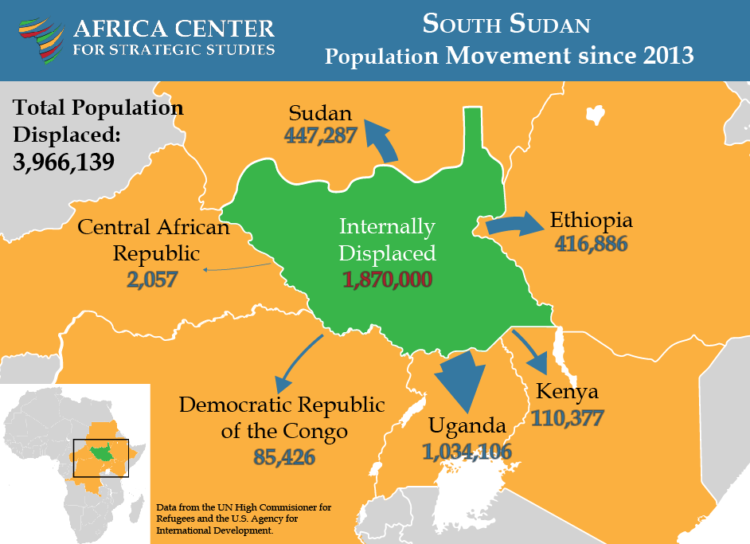 This brief summary should illustrate the wide range of challenges facing the people of South Sudan and those of us trying to assist in the country’s development. The rate of adult literacy is only about 30% (higher among men than women), employment outside of traditional cattle-herding and agriculture is very low, and investment in infrastructure such as roads and bridges is very limited. For more information on any of the topics covered in this article, we suggest you follow one of the source links for the maps and illustrations above.Africa Sunrise Communities is focusing its efforts at a very local level to give children in Bor town, Jonglei State, access to education. We support the efforts of other international agencies and local leaders to solve the larger problems of armed conflict, feeding and resettling refugees, and developing the economy of South Sudan. For more information about our work so far, see other blog posts on our website. To support us, visit our Get Involved page and share our news with your friends on Facebook and Twitter._________________________________________________________Follow us on Facebook and Twitter (@africa_sunrise).
This brief summary should illustrate the wide range of challenges facing the people of South Sudan and those of us trying to assist in the country’s development. The rate of adult literacy is only about 30% (higher among men than women), employment outside of traditional cattle-herding and agriculture is very low, and investment in infrastructure such as roads and bridges is very limited. For more information on any of the topics covered in this article, we suggest you follow one of the source links for the maps and illustrations above.Africa Sunrise Communities is focusing its efforts at a very local level to give children in Bor town, Jonglei State, access to education. We support the efforts of other international agencies and local leaders to solve the larger problems of armed conflict, feeding and resettling refugees, and developing the economy of South Sudan. For more information about our work so far, see other blog posts on our website. To support us, visit our Get Involved page and share our news with your friends on Facebook and Twitter._________________________________________________________Follow us on Facebook and Twitter (@africa_sunrise).
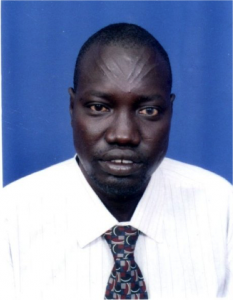 Personal Testimony, MY Experience As I walked across the campus during my time at Asbury Theological Seminary, several students kept asking me, “What happened to your head?” They were looking at my scarification. Some of my friends saw my scar as funny or they said, “I am so sorry for your accident on your head.” I said, “Dude, this is not an accident, it is my cultural norm.”The Problem– devaluing a person through devaluing their culture is dehumanizingThey asked me again: “Would you please tell us what happened and why?” I would tell them that it is my pleasure to talk about this; that it blessed me to discuss it. I would say that far from being an accident, this is a cultural norm among the Dinka tribes of South Sudan.The Need – Understanding through Conversation: Meeting people within their own cultureJesus meets people within their own culture, He does not devalue people because of their culture, rather He illuminates their value through their culture. We all must be aware of cultural differences when we speak to others. It’s all to easy to force our cultural norms on others, and to question them for being different than our idea of normal. Why Did I Write a Book?
Personal Testimony, MY Experience As I walked across the campus during my time at Asbury Theological Seminary, several students kept asking me, “What happened to your head?” They were looking at my scarification. Some of my friends saw my scar as funny or they said, “I am so sorry for your accident on your head.” I said, “Dude, this is not an accident, it is my cultural norm.”The Problem– devaluing a person through devaluing their culture is dehumanizingThey asked me again: “Would you please tell us what happened and why?” I would tell them that it is my pleasure to talk about this; that it blessed me to discuss it. I would say that far from being an accident, this is a cultural norm among the Dinka tribes of South Sudan.The Need – Understanding through Conversation: Meeting people within their own cultureJesus meets people within their own culture, He does not devalue people because of their culture, rather He illuminates their value through their culture. We all must be aware of cultural differences when we speak to others. It’s all to easy to force our cultural norms on others, and to question them for being different than our idea of normal. Why Did I Write a Book?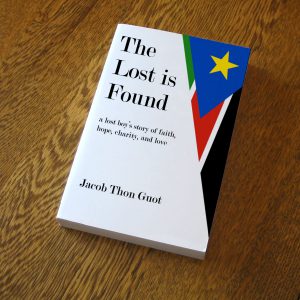 My classmates’ confusion about scarification and my culture caused me much anguish. My book is the solution. The Lost is Found: A “Lost Boy’s” Story of Faith, Hope, Charity, and Love tells my story of becoming a “Lost Boy,” when Muslim militias raided my village in what was then Sudan in 1987, when I was 7 years old. It details my years of running for my life, living in refugee camps, before being brought to the US in 2001. It describes a great deal about my life in Sudan and answers the questions about this lesser known culture. It tells a great deal about Dinka society, including marriage customs, the scarification rite of passage, and describes the rituals in detail. Great news! Jacob’s book, The Lost is Found, is now available in print and eBook format. All proceeds from his book go towards funding his mission to his own people, South Sudanese refugees, especially orphan children, in Uganda.EBooks are available from Amazon, as are print copies. However, if you make a gift of $50 to Africa Sunrise Communities, you will receive an autographed copy. Special thanks to www.EABooksPublishing.com. Thank you much for your generous support.Jacob Thon GuotExecutive Director and FounderAfrica Sunrise Communities
My classmates’ confusion about scarification and my culture caused me much anguish. My book is the solution. The Lost is Found: A “Lost Boy’s” Story of Faith, Hope, Charity, and Love tells my story of becoming a “Lost Boy,” when Muslim militias raided my village in what was then Sudan in 1987, when I was 7 years old. It details my years of running for my life, living in refugee camps, before being brought to the US in 2001. It describes a great deal about my life in Sudan and answers the questions about this lesser known culture. It tells a great deal about Dinka society, including marriage customs, the scarification rite of passage, and describes the rituals in detail. Great news! Jacob’s book, The Lost is Found, is now available in print and eBook format. All proceeds from his book go towards funding his mission to his own people, South Sudanese refugees, especially orphan children, in Uganda.EBooks are available from Amazon, as are print copies. However, if you make a gift of $50 to Africa Sunrise Communities, you will receive an autographed copy. Special thanks to www.EABooksPublishing.com. Thank you much for your generous support.Jacob Thon GuotExecutive Director and FounderAfrica Sunrise Communities
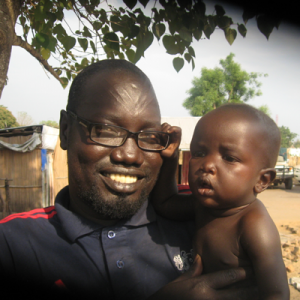 At the very young age of 7, I became a “Lost Boy” of Sudan. This term was coined to describe the over 20,000 boys from the Sudanese ethnic groups who were displaced and/or orphaned during the Second Sudanese Civil War (1983-2005). I am a member of the Dinka tribe and I became one of the “Lost Boys” in 1987. We lost everything – our families, our homes, and even our country – at the hands of the North Sudanese Army and radical Muslim militants.Through God’s grace and protection, I was able to flee over 1,000 miles of barren wilderness, making life-and-death decisions most adults would shrink from. God protected me on this nightmare journey. I ended up in a Kenyan refugee camp in Kakuna and grew up there from 1992-2001, staying until I was 21 years old.Through a series of miracles, I came to the United States (Houston, Texas) in March of 2001 and was able to obtain an education, completing my BS degree in Bible, Christian Life, and Ministry and even becoming an American citizen. I am currently studying for two Master’s degrees – in Intercultural Studies and in Christian Leadership – at Asbury Theological Seminary in Wilmore, Kentucky. I think of myself as a modern-day Nehemiah. “When I heard these things, I sat down and wept. For some days I mourned and fasted and prayed before the God of heaven. Then I said: ‘Lord, the God of heaven, the great and awesome God, who keeps his covenant of love with those who love him and keep his commandments, let your ear be attentive and your eyes open to hear the prayer your servant is praying before you day and night for your servants, the people of Israel. I confess the sins we Israelites, including myself and my father’s family, have committed against you. We have acted very wickedly toward you. We have not obeyed the commands, decrees and laws you gave your servant Moses.’” (Nehemiah 1:4-7 NIV).Today, actually, I am praying this same prayer because my country of South Sudan has come out of war only go to right into another one. I am in exile just as Nehemiah was and I feel the same call as Nehemiah did. Nehemiah was called to rebuild the wall in the city of Jerusalem. I, Jacob, am called to bring restoration to my people and to bring them a message of hope. In the Old Testament, Nehemiah was a captive Israelite in Babylon, one who was blessed by being permitted to return to his home country to help rebuild it. That is my dream and my desire.God has brought me through a modern exodus. Like the ancient Israelites, God used my journey from Sudan to Kenya to provide me with instruction, teach me patience, instill resolve within me, and deepen my relationship with Him. I am now an ordained Anglican Priest from the Bor Diocese, and I wish to further my walk with the Lord and return to my own promised land. My heart’s desire is to become a pastor and missionary and forgive all the Muslims who killed my family, relatives, and friends.With much help from others who came alongside me, I founded Africa Sunrise Communities to help me work within the Buyawale Refugee Camp in Uganda, where some 20,000 communities/tribes and refugees from South Sudan are living.Much of the problem we have concerns tribal warfare and killing, which is still going on in South Sudan. Late last year I lost my mother-in-law, who was killed in a rebel attack, and four of my nieces and nephews, who had traveled with her, were displaced. Africa Sunrise Communities raised the funds to get those children back to safety in a Ugandan refugee camp. Now we are raising funds to pay the fees for their education.I ask you to continue to pray for the situation in South Sudan. Also please pray that God would touch the hearts of donors who can help Africa Sunrise Communities financially, especially for the education of these relatives and other refugee children in the camp. Although I am from the Dinka tribe, I believe that the men and women of South Sudan, regardless of their tribe, are one people and need to learn to act in that way. The same justice must be available to all. God sent me to America to help me get an education so that I can help my own people. Nehemiah prayed, “Send me to the city…where my ancestors are buried so that I can rebuild it.” (Nehemiah 2:5, NIV). The same prayer is within me.In Matthew 28:18-20, Jesus sends out those whom he had loved, lived with, and trained. Their field was the world, and their mission was to make disciples, to baptize them, and to teach them to obey what Jesus had taught them. Our mission at Africa Sunrise Communities, in line with this Great Commission, is to go out to refugees, to disciple them, and to teach them how to live in peace with one another, through education and by supporting themselves with the work of their handsThat is my dream and my mission, and I invite you to join me in this great cause, through your prayers and your financial support.President and Founder,Jacob Guot
At the very young age of 7, I became a “Lost Boy” of Sudan. This term was coined to describe the over 20,000 boys from the Sudanese ethnic groups who were displaced and/or orphaned during the Second Sudanese Civil War (1983-2005). I am a member of the Dinka tribe and I became one of the “Lost Boys” in 1987. We lost everything – our families, our homes, and even our country – at the hands of the North Sudanese Army and radical Muslim militants.Through God’s grace and protection, I was able to flee over 1,000 miles of barren wilderness, making life-and-death decisions most adults would shrink from. God protected me on this nightmare journey. I ended up in a Kenyan refugee camp in Kakuna and grew up there from 1992-2001, staying until I was 21 years old.Through a series of miracles, I came to the United States (Houston, Texas) in March of 2001 and was able to obtain an education, completing my BS degree in Bible, Christian Life, and Ministry and even becoming an American citizen. I am currently studying for two Master’s degrees – in Intercultural Studies and in Christian Leadership – at Asbury Theological Seminary in Wilmore, Kentucky. I think of myself as a modern-day Nehemiah. “When I heard these things, I sat down and wept. For some days I mourned and fasted and prayed before the God of heaven. Then I said: ‘Lord, the God of heaven, the great and awesome God, who keeps his covenant of love with those who love him and keep his commandments, let your ear be attentive and your eyes open to hear the prayer your servant is praying before you day and night for your servants, the people of Israel. I confess the sins we Israelites, including myself and my father’s family, have committed against you. We have acted very wickedly toward you. We have not obeyed the commands, decrees and laws you gave your servant Moses.’” (Nehemiah 1:4-7 NIV).Today, actually, I am praying this same prayer because my country of South Sudan has come out of war only go to right into another one. I am in exile just as Nehemiah was and I feel the same call as Nehemiah did. Nehemiah was called to rebuild the wall in the city of Jerusalem. I, Jacob, am called to bring restoration to my people and to bring them a message of hope. In the Old Testament, Nehemiah was a captive Israelite in Babylon, one who was blessed by being permitted to return to his home country to help rebuild it. That is my dream and my desire.God has brought me through a modern exodus. Like the ancient Israelites, God used my journey from Sudan to Kenya to provide me with instruction, teach me patience, instill resolve within me, and deepen my relationship with Him. I am now an ordained Anglican Priest from the Bor Diocese, and I wish to further my walk with the Lord and return to my own promised land. My heart’s desire is to become a pastor and missionary and forgive all the Muslims who killed my family, relatives, and friends.With much help from others who came alongside me, I founded Africa Sunrise Communities to help me work within the Buyawale Refugee Camp in Uganda, where some 20,000 communities/tribes and refugees from South Sudan are living.Much of the problem we have concerns tribal warfare and killing, which is still going on in South Sudan. Late last year I lost my mother-in-law, who was killed in a rebel attack, and four of my nieces and nephews, who had traveled with her, were displaced. Africa Sunrise Communities raised the funds to get those children back to safety in a Ugandan refugee camp. Now we are raising funds to pay the fees for their education.I ask you to continue to pray for the situation in South Sudan. Also please pray that God would touch the hearts of donors who can help Africa Sunrise Communities financially, especially for the education of these relatives and other refugee children in the camp. Although I am from the Dinka tribe, I believe that the men and women of South Sudan, regardless of their tribe, are one people and need to learn to act in that way. The same justice must be available to all. God sent me to America to help me get an education so that I can help my own people. Nehemiah prayed, “Send me to the city…where my ancestors are buried so that I can rebuild it.” (Nehemiah 2:5, NIV). The same prayer is within me.In Matthew 28:18-20, Jesus sends out those whom he had loved, lived with, and trained. Their field was the world, and their mission was to make disciples, to baptize them, and to teach them to obey what Jesus had taught them. Our mission at Africa Sunrise Communities, in line with this Great Commission, is to go out to refugees, to disciple them, and to teach them how to live in peace with one another, through education and by supporting themselves with the work of their handsThat is my dream and my mission, and I invite you to join me in this great cause, through your prayers and your financial support.President and Founder,Jacob Guot